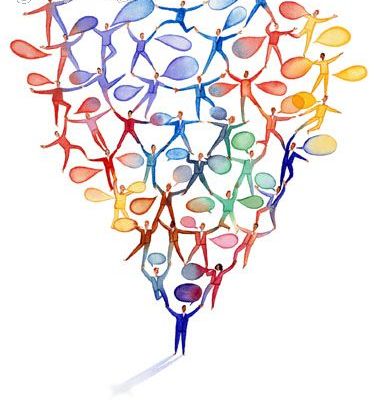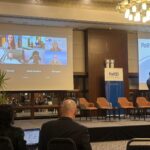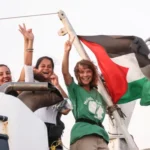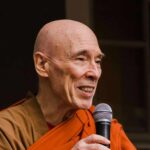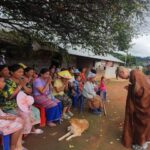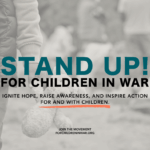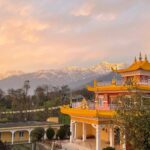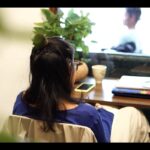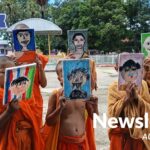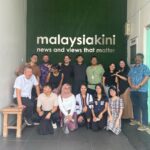Sri Lankan Reflections on What It Means to Be Rich or Poor
When I was small, I didn’t know that I was poor. My family lived in a small fishing village on the southern coast of Sri Lanka. We had rice from the paddy fields and fish from the sea. Our house was simple, but it kept us dry when it rained. The local temple was the center of social activities in the village. The children would meet there after school, and everyone, old and young, came together to observe important events: full moon days, new births, marriages, and deaths. We didn’t have television, but there was plenty of entertainment. People sang and danced. There were drama performances, puppet shows, and festivals. I remember lying on the beach watching the stars at night. I remember old people and young people pausing to enjoy the sunset.
There were problems, of course, but we never felt alone. If we faced a difficulty, we knew others would be there to provide support. If someone died, the rest of the village would magically mobilize to provide food and take care of all of the funeral arrangements. The mourning family didn’t have to worry about a thing. If a father was sick or injured, others would assist until the family was able to support itself. People looked after each other’s children. Mothers would prepare extra dishes of favorite curries to share with neighbors.
In my village, there was a family that lived in a big house surrounded by a high wall. We used to climb the wall to go and pick their mangoes. I don’t remember envying that family. They were stuck behind the wall and didn’t seem to be having as much fun as the rest of us.
When I was 12 years old, I took a national exam and earned a place at a big boarding school in the capital. My mother took me to the village temple on the way to train station, and I still remember the lecture I received from the head monk. He told me, “Today you are leaving your family, your temple, and your village to enter into a big school. You will meet new people and have new experiences, but do not forget where you came from. Never forget the values you learned here and never forget your daily spiritual practice. That’s your wealth. You must protect it like your life.”
It was only after I came to school in Colombo that I learned I was poor. Most of my classmates were from very wealthy families. My new friends were more concerned about what I didn’t have than I was. They took me shopping for modern underpants and proper shoes. They paid for me to join them on trips and adventures.
The monk was right. I met new people, had new experiences, and learned about a confusing new value system. This value system was based on the accumulation of material things. In my village, there was a limit to needs. You can only eat so much. You can only sleep in one bed. You can only wear one set of clothing at a time. But in this new system, there was no limit. People always wanted more: more money, more property, a bigger car, a bigger house.
The whole society was changing. It started in the cities. It started in the wealthy families of my school friends, but it began to spread. There were advertisements telling us about needs that we didn’t even know we had. There were movie theaters with actors showing us the latest clothes to wear. Before long, there was television bringing these messages right into our homes day after day. Expectations and aspirations were changing.
The political situation began to change as well. When the British withdrew from my country, they left behind a majority-rules electoral system in the hands of a wealthy urban minority. The people in power didn’t have much in common with the majority of people in the country, but they needed these people’s votes to stay in power. Initially, they did this by appealing to people’s identity and sense of community. They spoke of traditional values and restoring Sri Lanka to its pre-colonial glory.
As people began to want and expect more and more, the link between material wealth and power became more visible. Political leaders used their money to provide material benefits in exchange for votes. You needed more money to get more votes. Money brought power. Of course, the equation went the other way too. If you had a position of political power, there were many opportunities for personal profit through favors, contracts, and other channels. Power brought money.
When I was growing up, the monks taught that we are all interdependent. We are linked together with other people and with our environment. If I cause suffering, it will directly or indirectly have negative consequences for me. If I help others, it will contribute to my well-being. If I look after my environment, it will look after me. We were taught to consider the consequences on the broader community before taking action.
When some of my friends began to enter politics, I got a firsthand look at this money-power cycle. Even those who started with genuine motives rapidly got pulled into this system. It is difficult to compete against those who are motivated by personal gain without adopting some of their tactics. Political leaders were struggling for more resources and more power without considering the consequences for the broader community. The consequences emerged as violent conflict. People who did not have money to compete for resources and power began to compete with guns.
When I was a boy, my country was known internationally for its spices, its gems, its tea, its tropical beaches, and its Buddhist stupas. Today it is known for war. According to the international news, the war in Sri Lanka was an ethnic conflict, but it was never so simple. Our society was divided along many different lines. I have lost Sinhalese friends to Sinhalese gunmen and Tamil friends to Tamil gunmen.
This experience has taught me an interesting lesson about wealth. A main driver of this new value system, this system based on the accumulation of material things, is the belief that material wealth and power will bring freedom, security, and happiness. If I have money, I can have my own vehicle and avoid the risks of public transport. If I have money, I can pay for big walls and security guards and alarm systems. If I have money, I can leave the country or send my children abroad. It’s easy to get caught up in this way of thinking.
Of course, experience shows us that material wealth and power do not bring freedom, security, and happiness. In fact, they may bring the opposite. The wealthiest and most powerful people I know cannot walk freely on the street. They cannot go to their favorite roadside stand for a meal. They worry about kidnapping. They worry about robbery. They worry about losing their money or losing their power. They worry that their children will have less money and power than they do. They feel alone.
I think back to my childhood. We didn’t have many material things, but we had a different kind of wealth. We could move freely from place to place without fear. If any problem arose, we knew that others would be there to provide support. We felt connected to each other and to our environment. There was a sense of belonging.
I may not have thought about poverty when I was young, but discussions on poverty and wealth have become part of my daily life. I work with a Sri Lankan organization called Sewalanka. In English, we are called a non-governmental organization, an NGO, a non-profit, and a development agency.
We have a slightly different understanding of our role. The word sewa (or seva) originally comes from the Sanskrit word for string, and in ancient texts, it was used to refer to the connectedness of all things. In the two main languages of modern Sri Lanka, Sinhala and Tamil, the word sewa is commonly used to mean service, but in historical texts, the roots of the word are more evident. Sewa is selfless service, service that is done without any expectation of direct personal benefit. It is servi
ce that is motivated by the recognition that all things are connected. Sewalanka was formed to catalyze sewa: selfless service based on the awareness that we are all interdependent.
Sewalanka partners with many international development agencies to provide services to rural communities in Sri Lanka. For most of these organizations, success is measured in terms of material wealth and economic growth. A family is poor if their daily income is below a certain level. Because Sewalanka works with international development organizations, we have learned this terminology and the related tools like participatory needs assessments, capital studies, and wealth ranking. Our partners need quantitative measurements of success. They want to know the change in people’s material assets or monthly income over time.
These numbers can be useful, but it is important to remember that they only provide a partial picture. According to income and asset measurements, my family was poor when I was a child, but we were happy. Our basic needs were met. We had food and shelter. We had clean air and water, a strong social support system, and an enriching spiritual life. Many people in Sewalanka share my experience. They come from families that were poor by conventional measures but were wealthy in other ways.
People should have the space to define their priorities on their own terms. This is the rationale behind Sewalanka’s mission statement: enhancing the capacity of rural communities to identify and address their own development needs. We focus on mobilizing voluntary membership organizations around issues of common interest. These issues vary over time and from place to place. In a war or natural disaster situation, people will understandably be focused on basic needs like water, food and shelter. In a more stable context, priorities are not limited to material needs. Groups may decide to organize a religious event, build a community center, host a sports meet for children, or come together for an environmental clean-up.
This type of collective action rebuilds social networks that have been broken apart by decades of violent conflict and competition over material resources. With each new achievement, people become more confident and more motivated to take on new issues like funeral aid services or community banks. By working together, they learn how to resolve internal conflicts, take decisions, manage resources, and motivate others to volunteer their time and sewa.
These activities may not always increase personal income or assets, but they contribute to a deeper community wealth, the kind of wealth that the head monk from my village tried to explain to me so many years ago.
Harsha Kumara Navaratne
Chairman, Sewalanka Foundation
Present Chairperson, International Network of Engaged Buddhists

